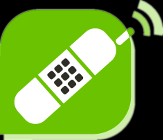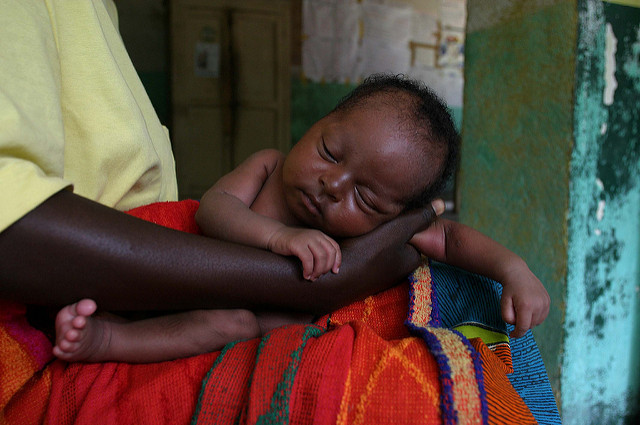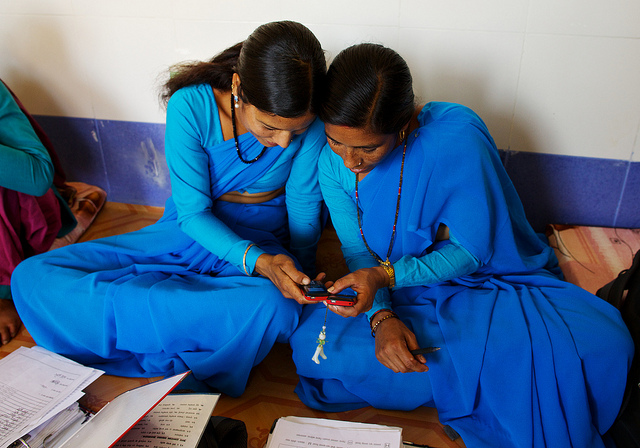Mobile Technology for Community Health (MOTECH) Suite
Mobile Technology for Community Health (MOTECH) Suite is an open source enterprise software package designed by the Grameen Foundation to connect popular mHealth technologies to strengthen healthcare systems by streamlining patient data collection and improving patient engagement. MOTECH has the capacity to reach illiterate patient populations as well as patient populations in rural areas and works by connecting frontline worker systems such as CommCareHQ, eHealth systems such as OpenMRS and DHIS2, and communication systems such as IVR, SMS, and email to improve healthcare delivery. The MOTECH platform is designed to work effectively in low-resource settings, apply to a broad range of health domains, and meet the needs of large patient populations.

MOTECH Suite has four typical features used by organizations involved in its implementation: mobile communication of patient care information notifications for patients, patient data collection, caregiver alerts, and streamlined communication flow for patients, caregivers, and health administrators.
1. Patient care information such as appointment reminders and medication adherence reminders are communicated to patients via voice or SMS and in accordance with the individual patient's schedule.
2. Patient data is collected from patients and caregivers through the MOTECH platform and may include gathering information about patient symptoms before and after treatment or something as simple as feedback on the delivery of the health services that were provided to the patient.
3. Caregiver alerts on a patient's status can tell a Community Health Worker (CHW) when the patient has not taken their medication or tell a nurse when the patient has missed an appointment.
4. Patients and caregivers can improve communication using MOTECH through creating secure peer networks for patients with similar health concerns to connect and offering a platform for initiating patient-caregiver conversations to allow caregivers to manage patient workloads effectively.
So far, MOTECH has been implemented by several organization in Ghana, Zambia, and India. Notable implementations include the Mobile Midwife & Nurses Application in Ghana, Treatment Advice by Mobile Alerts (TAMA) in urban India, Ananya in Bihar, India, and Kilkari in Bihar, India.
 A severely malnourished child (Credit - Pierre Holtz for UNICEF, CC-BY 2.0)
A severely malnourished child (Credit - Pierre Holtz for UNICEF, CC-BY 2.0)
Mobile Midwife & Nurses Application
The Mobile Midwife Application and the Nurses Application were developed by Ghana Mobile Technology for Community Health (MOTECH Ghana), which is a collaboration between the Grameen Foundation and Ghana Health Service. The Mobile Midwife application provides targeted and time-specific pregnancy and childcare information weekly to women and their families through voice messages in their own language. The service also provides some messages addressed specifically to husbands to provide practical information and advice about how they can support their wives. Mobile Midwife makes it possible to reach women with low literacy levels through its use of IVR. The Nurses' Application enables Community Health Workers to track care delivered to women and newborn children in their area. Patient data can be entered and send to MOTECH servers by mobile phone. The MOTECH system compares the patient's healthcare information to their recommended treatment schedule so that the Mobile Midwife service can send a reminder to a patient who has missed care or appointments that are recommended on the treatment schedule.
Treatment Advice by Mobile Alerts (TAMA)
TAMA uses IVR calls to HIV-positive patients in India to remind them of medical appointments and pill times. Patients can report whether or not they have adhered to their treatment and if they are concerned about side effect symptoms, they can call TAMA to report their symptoms and get advice for what to do. Nurses can view patient adherence data and input patient medical data using a web-based tool.
 Community Health Workers using mobile phones (Credit - Rob Tinworth for Possible, CC-BY-2.0)
Community Health Workers using mobile phones (Credit - Rob Tinworth for Possible, CC-BY-2.0)
Ananya
Ananya Bihar is a collection of health services coordinated in partnership between the government of the State of Bihar, India and The Bill and Melinda Gates Foundation and implemented mainly by ten partnering organizations, among which are CARE, World Health Partners (WHP), Population Services International (PSI), International Finance Corporation (IFC), BBC Media Action, Project Concern International (PCI), Mathematica Policy Research, and COHESIVE. Ananya's health services program includes eight projects in the areas of newborn and child health, maternal health, family planning, nutrition, immunization, infectious disease management (for pneumonia, tuberculosis, diarrhea, and visceral leishmaniasis), and water, sanitation and hygiene.
Kilkari
Pregnant women enrolled in Kilkari receiver IVR calls containing content from BBC Media Action in their local language. The calls remind enrolled women of healthy behaviors during pregnancy and encourage them to follow their care schedules as recommended by the Bihar Ministry of Health. Kilkari includes 72 free time-relevant audio messages starting in the second trimester of pregnancy and ending when the child is one year old.
Timed & Targeted Counseling
World Vision's Timed & Targeted Counseling mhealth Application (mTTC) was built using MOTECH. Timed & Targeted Counseling (TTC) is a CHW and Volunteer-based program to extend primary health care counseling to individual households. The program aims to reduce maternal and infant morbidity and mortality by delivering carefully-timed messages on maternal newborn child health to families via home visits. TTC also engages men as partners and fathers with counseling to promote positive influence on better outcomes for mothers and children. Counselors present them with an illustrated "problem story" followed by a "positive story" with guiding questions to help families gain an awareness of health problems and their solutions. CHWs can use the mTTC app to collect household health and health practices data, to help them time home visits properly, and to assist with other aspects of case management.
Development Partners include:
- Dimagi: Dimagi uses mobile phone CHW job aid CommCare for better interaction between patients and caregivers. CommCare works in conjunction with MOTECH and provides a variety of services (CommCare UI is a series of forms for walking patients and caregivers through questions and health information vital for specific appointments; CommCare HQ is a server component that stores data collected from the CommCare handset app and that communicates with the MOTECH server to coordinate patient care between the two systems) and can operate on medium and even low capacity phones.
- University of Southern Maine: Computer Science Department faculty members Bruce MacLeod developed MOTECH suite technology in collaboration with Columbia University's Medical School of Public Health, Ghana Health Service, and the Grameen Foundation.
- InSTEDD: InSTEDD insulates app developers from the complexities of dealing with individual operator IVR or SMS systems. InSTEDD partners with the Grameen Foundation in connecting Nuntium and Verboice technologies to expand the SMS and IVR read capabilities of MOTECH apps.
- VillageReach: VillageReach is leading contributor to OpenLMIS project, a scalable and open source software-based logistics solution for healthcare supply chain management in low- and middle-income countries.
- ThoughtWorks: ThoughtWorks is an implementation partner and significant contributer to MOTECH apps build to date, including those used for MOTECH Ghana, TAMA, and Ananya.
Implementation partners include:
- CARE: CARE is an international development organization working in India to end poverty by improving people's lives and livelihoods in poor and marginalized areas. CARE is a major participant in the Ananya effort in Bihar. CARE supports the government of Bihar in providing family health interventions to the population. CARE is also involved in the implementation of the Integrated Family Health Initiative (IFHI) with support from the Bill and Melinda Gates Foundation.
- BBC World Service Trust: The BBC World Service Trust is a participant of the Ananya effort in Bihar, India and is focused on creating jobs aids and training materials for distribution to community health workers in India via the MOTECH platform.
- World Vision: World Vision Zambia is using MOTECH to improve healthcare providers' ability to deliver maternal health and HIV/AIDS referrals and care through the OVC/STEPS program.
- Johnson + Johnson: Johnson + Johnson is currently deploying a Treatment and Mobile Alerts program in urban India in an effort to increase appointment and treatment adherence for HIV/AIDs patients on anti-retroviral regimens.
- World Health Partners (WHP): WHP's goal is to provide general health and reproductive health services to rural and otherwise vulnerable communities in low-income countries by using local market forces to benefit the poor. WHP works under the Ananya effort to run a large-scale social franchise network of private telemedicine centers for rural populations, as well as urban health clinics and labs in Bihar, India. WHP is planning to use MOTECH to increase the range of services rural franchises can provide.
- Grameen Foundation: The Grameen Foundation deployed MOTECH in the Upper East Region of Ghana in July 2010 and is now scaling up its use across the country of Ghana.
Funders include:
MOTECH Suite Honors and Awards:
- MOTECH and the Grameen Foundation received the Computer World Honors 2013 for health projects.
- BBC Media Action received a 2015 Global Mobile Award for "Best Mobile Product of Service for Women in Emerging Markets" at the 2015 GSMA Mobile World Congress for its Mobile Academy and Mobile Kunji, both of which were built on the MOTECH platform.
Articles in Open Health News
- Nationwide Launch of Mobile Health Program in Rural India Signals New Era of mHealth for Emerging Economics
- Ending Poverty: There's an Open Source App for That!
- Mobile Midwifery Delivers Health to Ghanaian Moms
- Joining Up Ghana's Healthcare to Save Lives
- Two Ghanaian Software Products Win 2013 World Summit Awards
- Nandi Mobile, MoTeCH Win UN's World Summit Awards
- Grameen Foundation Develops Mobile Technology for Community Health (MOTECH)
- Computerworld Honors 2013: Critical Health Data Sent to Rural Ghana Via Mobile
- Mobile Health Around the Globe: Ghana - Changing the Very Essence of Healthcare
- Sana: Providing Hope for Healthcare through Mobile Technology
Homepage: https://motechproject.org/
- Tags:
- Acquired Immune Deficiency Syndrome (AIDS)
- Ananya Bihar
- anti-retroviral regimens
- BBC Media Action
- BBC World Service Trust
- Bihar Ministry of Health
- Bruce MacLeod
- CARE
- caregiver alerts
- COHESIVE
- collaboration
- Columbia University's Medical School of Public Health
- CommCare
- CommCare HQ
- CommCare UI
- community health worker (CHW)
- data collection
- DHIS2
- diarrhea
- Dimagi
- eHealth systems
- family planning
- Ghana Health Service
- Grameen Foundation
- healthcare delivery
- healthcare supply chain management
- human immunodeficiency virus (HIV)
- hygiene
- illiterate patient populations
- immunization
- India
- infectious disease management
- InSTEDD
- Integrated Family Health Initiative (IFHI)
- International Finance Corporation (IFC)
- IVR
- Johnson + Johnson
- Julie Smyth
- Kilkari
- maternal health
- Mathematica Policy Research
- mHealth technology
- Mobile Midwife & Nurses Application
- Mobile Technology for Community Health (MOTECH) Suite
- newborn and child health
- Nuntium
- Nutrition
- open source
- open source enterprise software package
- open source software (OSS)
- OpenLMIS project
- OpenMRS
- OVC/STEPS program
- patient engagement
- pneumonia
- Population Services International (PSI)
- Project Concern International (PCI)
- sanitation
- SMS
- The Bill and Melinda Gates Foundation
- ThoughtWorks
- treatment adherence
- Treatment Advice by Mobile Alerts (TAMA)
- tuberculosis
- University of Southern Maine Computer Science Department
- USAID
- Verboice
- VillageReach
- visceral leishmaniasis
- World Health Partners (WHP)
- World Vision Zambia
- World Vision's Timed & Targeted Counseling mhealth Application (mTTC)
- Login to post comments